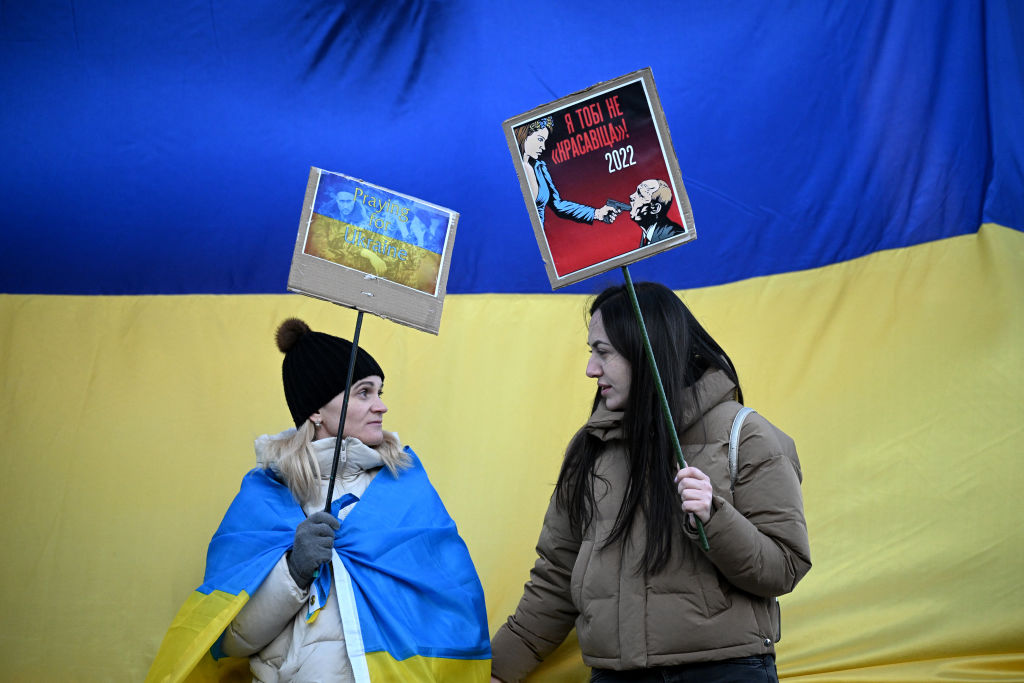Britain and Ukraine are tied together by our independent tech industries

AS RUSSIA launched an illegal war of aggression in eastern Europe, Ukraine may still feel quite far away from the UK, even though it is in Europe. Cities like Mariupol and Kharkiv are foreign to most Britons. Crimea is best known to most from a 200 year old poem. When Vladimir Putin talks of Ukraine as being part of Russia, many people won’t know how historically inaccurate that is. Nobody likes to see bloody conflict but how concerned should we be in the UK?
Ukraine is much closer to the UK than many people realise. Wars are by their nature inflationary and this would particularly be the case with Ukraine, when considering Europe’s dependency on Russia for oil, gas and key ingredients like wheat, much of which travels through Ukraine. Inflation will now likely rise faster as will energy prices.
Trade between the UK and Ukraine is relatively limited – £1.5 bn in 2019. The main UK goods exports to Ukraine were aircraft, medicinal and pharmaceutical products as well as cars. The pure economic impact of war will be limited. Our largest imports from Ukraine are cereals; over 14 per cent of UK imports of all cereals comes from the Ukrainian plains. So a direct impact of war will be on prices of bread and breakfast cereals.
But the tech industry ties the two nations together in a way that is much deeper than many appreciate; the UK and Ukraine are today connected by thousands of companies, IT specialists and coders. Did you know that WhatsApp’s founder was Ukrainian? As was one of PayPal’s co-founders. Even the co-inventor of wi-fi was Ukrainian.
Have you used the app Grammarly to improve your writing? It’s a Ukrainian startup. Using Snapchat? The masking technology was brought by Looksery from Odessa and led by Yuri Monastyrshin. Revolut cofounder is Vlad Yatsenko from Mykolaiv. Ukraine is also a hotbed of cryptocurrency. Both Solana founder Alex Yakovenko and NearProtocol founder Illia Polosukhin were born in Ukraine.
Several Ukrainian startups have now reached unicorn status, valued at over £1bn and more than 2000 startups are vying to replace the likes of Gitlab, Jooble, Preply, DepositPhotos, PetCube, Mobalytics, Attendify, CleanMyMac, People.ai, InvisibleCRM, Readdle, to name a few.
Kharkiv, where Russian missiles have fallen, is a thriving technology hub, with more than 45,000 resident IT specialists. More than 100 R&D centres of major global companies are today located in Ukraine, including many British firms. In total over 170,000 skilled IT specialists today work in the outsourced IT industry building products that British consumers use everyday.
Currencycloud, for example, is an innovative British startup that provides banks and financial service providers with a wide range of APIs. The outsourcing team in Lviv applies the mobile virtual network operator business model. Lebara is a British telecommunications company, serving customers worldwide, providing Pay as You Go mobile SIM cards. A lot of its development is done in Ukraine. Many more British companies that produce anything from health-focused apps to delivery services rely on Ukrainian technology.
But our technological connection to Ukraine is even deeper. Ukraine is also a leading exporter of highly purified neon gas, which is used in the lasers necessary to etch circuit designs into silicon wafers to create microchips. Often this gas is a byproduct of Russian steel production, but it is then refined by specialised Ukrainian firms for use by semiconductor manufacturers. This war will disrupt supplies; Russia’s 2014 invasion Ukraine saw the price of neon shoot up 600 per cent. This time it will go higher, constraining supply of computers and smartphones and driving up their price.
Russia’s war in Ukraine is much closer to the UK than many realise and our connections to Ukraine are deeper and more important to the UK’s future economy than is often understood. We should care about Ukraine as fellow humans. But what happens in the IT centres of Kyiv, Mariupol, Kramlich and Liyv will also have a direct impact on us, not least via our digital links. We must take all the steps necessary to curtail Russia’s war. What happens on Ukrainian streets matters for the people of the UK.
